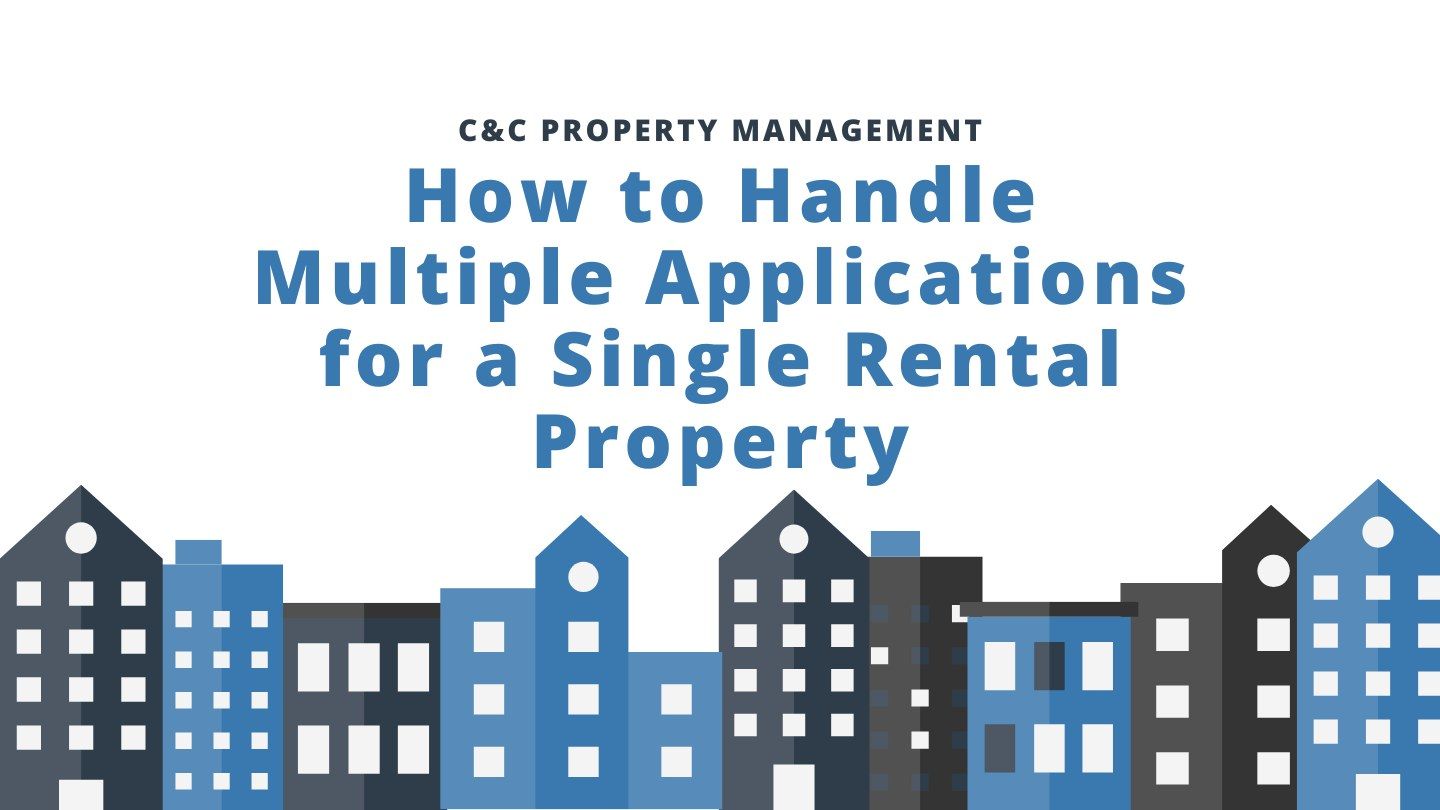How to Handle Multiple Applications for a Single Rental Property

Key Takeaways
- Qualified Tenants Ensure Stability: Renting to tenants with strong credit, steady income, and a good rental history helps protect your property and ensures consistent income.
- Fair and Consistent Application Process is Essential: Landlords must follow clear selection criteria, apply standards equally to all applicants, and comply with fair housing laws to avoid disputes or legal issues.
- Deadlines and Communication Keep Things Organized: Setting application deadlines, reviewing submissions in order, and providing timely updates builds trust and keeps the rental process efficient.
At
C&C Property Management, we understand the importance of renting to qualified tenants. A qualified tenant is someone who consistently pays rent on time, maintains a strong credit score, and has a stable employment history, among other positive attributes. Renting to the right tenant not only ensures consistent income but also protects your property from potential issues and damages.
However, in your quest to secure a high-quality tenant, it is essential to ensure that the selection process is fair, transparent, and consistent across all applicants. Failing to do so, whether intentionally or unintentionally, can lead to disputes, accusations of bias, and even legal complications down the road. Following a structured approach allows you to select tenants efficiently while staying fully compliant with fair housing laws.
In this blog, you will discover expert tips on how to manage multiple applications for a single rental property. From setting clear selection criteria and processing applications to maintaining consistent communication, this guide provides a step-by-step framework for landlords aiming to streamline the rental process and make informed, legally compliant decisions.
5 Tips on How to Handle Multiple Applications for a Single Rental Property
1. Establish Your Tenant Selection Criteria
Before you begin marketing your rental property, it is important to identify the specific qualities you want in a tenant. Clear selection criteria help you filter applications effectively and avoid subjective decision-making.

Ideally, a tenant should possess the following characteristics:
- Has a steady and verifiable employment history.
- Maintains a good credit score reflecting responsible financial behavior.
- Earns sufficient monthly income to comfortably cover rent.
- Has no prior eviction history.
- Has no relevant criminal history that could pose a risk.
Require prospective tenants to complete a detailed application form and provide supporting documentation, such as W-2 forms, pay stubs, credit reports, and references from previous landlords or employers.
When reviewing applications, it is critical to comply with fair housing laws. These laws require that landlords treat all applicants equally, regardless of protected classes. Protected classes include disability, color, race, nationality, familial status, and sex. Consistently applying your criteria to all applicants ensures fairness, transparency, and legal compliance.
2. State the Deadline for Applications
Whenever you are accepting rental applications, set a clear and specific deadline for submission and processing. Establishing a deadline creates a sense of urgency among applicants and encourages timely responses, helping you manage the process efficiently.
A clearly communicated deadline also prevents confusion, delays, or disputes regarding application timelines. Include the deadline in all rental listings and adhere strictly to it. Additionally, let applicants know when they should expect to hear back from you.
While many landlords process applications within three days, the timeline can vary depending on the number of applications received and the time required to verify each applicant’s information thoroughly. It is better to under-promise and over-deliver in terms of response time to maintain credibility.

3. Review All Applications
Once all applications have been received, begin the evaluation process immediately. It is important to evaluate applications in the order they were received. Following a first-come, first-served approach ensures fairness and consistency, aligning with fair housing requirements. Ignoring this approach may result in accusations of favoritism or bias from applicants who are not selected.
During the review, verify all the information provided. Contact references provided by applicants to gain insight into their reliability as tenants. Check employment records and income documentation to ensure applicants can meet rental obligations. Thorough verification minimizes risk and helps you select tenants who are financially stable and responsible.
4. Keep Tenants Updated Throughout the Process
Communication is a key component of a positive landlord-tenant relationship, even during the application stage. Keep applicants informed throughout the review process, providing updates on the status of their applications and the expected timeline for decisions.
Use this opportunity to answer any questions applicants may have and clarify any uncertainties about the rental process. Maintain professionalism, courtesy, and transparency in all correspondence.
5. Know What Screening Questions You Can Ask
When screening applicants, it is important to ask questions that help evaluate their suitability for your property while remaining compliant with the Fair Housing Act. Protected classes under the Act include race, color, disability, religion, sex, and familial status. Avoid any questions that could be perceived as discriminatory or that relate to protected classes.

Examples of questions to avoid include:
- Where are you originally from?
- Which church do you attend?
- Are you married?
- Do you have children?
- Are you gay?
- Are you disabled?
Instead, focus on non-discriminatory questions directly related to tenancy and rental obligations. Examples include:
- How many people will be living on the property?
- How much income do you earn per month?
- Have you ever been evicted?
- When are you looking to move in?
Apply the same screening questions consistently to all applicants. This ensures that your selection process is fair, objective, and legally compliant.
Bottom Line
After selecting a qualified tenant, document the reasons for your decision. Maintaining a clear record of your selection criteria and the evaluation process protects you in case of potential discrimination claims. Following a structured, consistent, and legally compliant approach is essential to successful property management.
C&C Property Management is a full-service residential brokerage company dedicated to helping rental property owners improve their investment returns in residential real estate. Contact us to learn more about how we can help you manage your properties efficiently and effectively.








